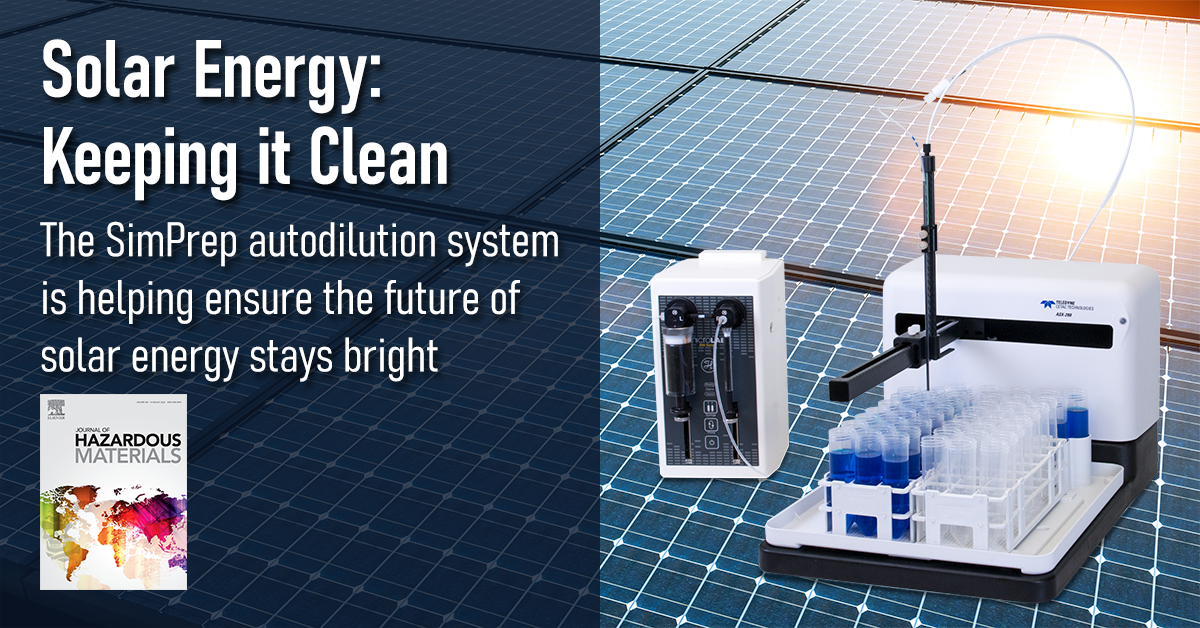A new paper published in the Journal of Hazardous Materials shows the SimPrep autodilution system by Teledyne CETAC being used as a tool in researching new solar energy technologies. A team of researchers from Switzerland, Germany, the United Kingdom, and the Netherlands sought to understand the lifecycle of lead-based materials used in novel solar cells.
Most solar panels are currently silicon-based, but successes with newer perovskite solar cells have driven interest in this material, which has the potential to overcome silicon’s limitations in efficiency and cost. Key to bringing perovskite solar cells (PSC) to market is a thorough understanding of their environmental impact beyond taking the place of other energy sources.


